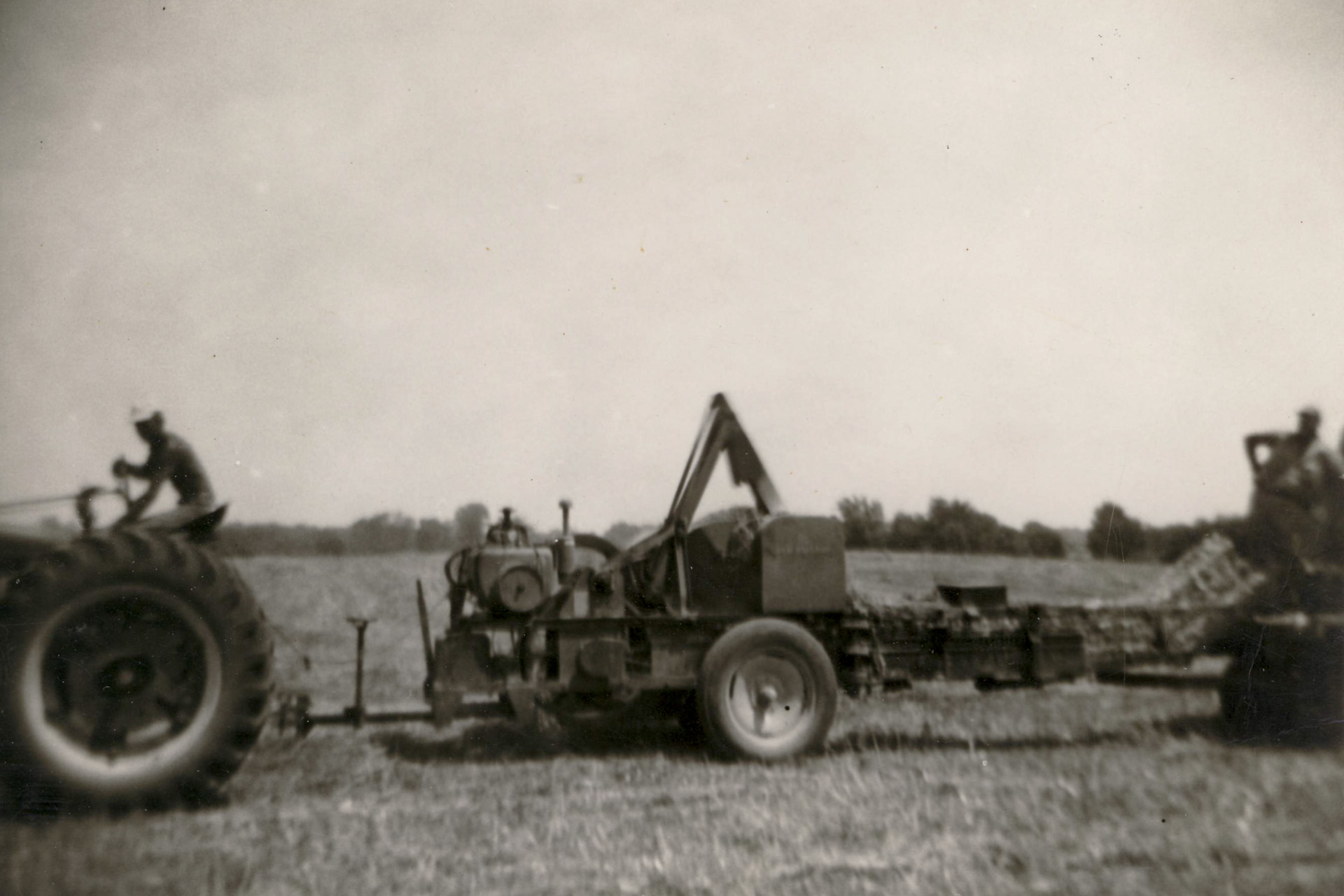This was a paper I wrote for my English class in 11th grade. The paper was dated April 25, 1997.
An economic depression hit the United States in the 1930s. In 1933, one in every four American works was out of a job. These hard times etched memories into the minds of many Americans. My great-grandma, Emma Baer, remembers the depression years as "rough times." If someone did have a job, his pay was quite less than what he had encountered before.
My great-grandpa, Glenn Baer, worked for his father-in-law on the family farm. According to what Grandma remembered, he received one dollar per hour. They also received a gallon of milk per week and meat whenever an animal was butchered. Grandma's dad gave them firewood to heat the house. They would buy a little coal from the elevator to hold the fire over night or when they would be gone for a long time.
When Grandma was younger, she remembers the huckster coming. He was the man that brought around flour, bread, and many other canned goods on his once-a-week visit. He did not sell any meat. Grandma said, when she was a little girl, she would wait at the end of the driveway for him to come because he would always give suckers to the kids.
Grandma told off the great importance of chickens. From the chickens, they could get eggs, and when they needed meat, they could butcher a chicken. She would also use the chicken eggs to trade for other things. When the huckster came, she would trade one dozen eggs for a loaf of bread. The thing she hated about chickens was butchering them. She would always make Grandpa chop off their heads before he left for work.
To show me the great value a chicken had, Grandma told me a story she recalled. She lived on her uncle's farm by the Miami County line. They lived there rent free. Her uncle had many cattle and hogs on the farm. One time, one of the hogs caught one of Grandma's chickens. It then took the chicken in the hog house. Grandma saw and heard this happening, so she ran over to investigate. The chicken meant so much to her that she climbed over the pen and crawled in the hog house on her hands and knees to save the chicken. She took the chicken, which was missing a few feathers but otherwise unharmed, away from the hogs and butchered it for supper. Afterwards, she began to realize she could have been killed by one of the hogs, considering they had tasted blood. The only thing on her mind at that time was saving the chicken.
Grandma could also get things she needed by making laundry soap. She used lard and lye to make the homemade laundry soap. She would then take the laundry soap to the grocery store to trade for the items she needed.
Grandma recollected getting food stamps. She said a family only got so many a month depending on the family size. The stamps were used to buy flour, sugar, and the like. A person really had to stretch them out because if you ran out, you were out of luck.
Grandma and Grandpa were married in 1929. For a washing stand, she used a small wooden box. She washed clothes with a washboard. On days when was going to wash, Grandpa would help Grandma carry water to the house because they had to carry all their water from the windmill, which was quite a distance from the house.
The story that Grandma liked to reminisce about the most happened to Grandpa. Grandpa needed to get to work at Grandma's dad's farm, but he did not have any gas in the car. The thing he knew was he really had to get to work to support his family. He did not have any money except one silver dollar given to him by his grandfather. He asked Grandma where that silver dollar was. She told him it was where it always was. He planned to go to the filling station and get one dollar's worth of gas, so he could get to work. He really did not want to spend the silver dollar because it meant so much to him. He left for the filling station with the silver dollar in his pocket. When he arrived, he told the man who owned the gas station, Bill Bowman, to give him a dollar's worth of gas. After Bill put the gas in the car, Grandpa told Bill he had no money except the silver dollar from his grandpa. Bill told Granpa there was no way he would accept that silver dollar knowing how much it meant to Grandpa, and Bill just gave him the gas. Bill said, "Someday you'll have the money, and you can give me the dollar then."
Another kindness she observed happened a few days before Christmas. A man was hooking up electricity to their house, but he was not going to be completely done before Christmas. They were hoping to have a Christmas tree with lights for the kids. The only thing the man had to do was have it inspected before he could turn the electricity on. The man decided that he would turn the electricity on even though it was not inspected. He said he wanted the kids to have Christmas lights.
Even though the depression was hard on everyone, America did survive. Neighbors would get together and have wonderful times at their square dances and other gatherings. At times, it was hard to tell that they were in the middle of the greatest depression in the history of the United Sates. The stories of the many kind people are still around today, and they will be remembered for eternity. A little kindness goes a long way into the hearts of others.







